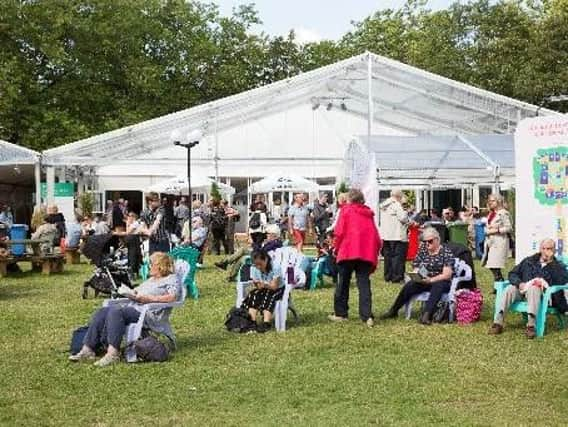Edinburgh Book Festival: Thomas Keneally | Colson Whitehead | Sarah Smarsh | Kerry Hudson


Not only because the veteran Australian novelist is a survivor of oesophagal cancer - which caused the cancellation of two previous visits to Edinburgh - but because, when an immensely respected 83-year-old writer launches into Waltzing Matilda, followed smartly by Ae Fond Kiss, the only reasonable thing to do is join in.
It set the tone for an encounter with the irrepressible, mischievous Keneally - officially a “Living Treasure” in his native land, and clearly not averse to the odd sheep joke - leaving chairperson Lesley McDowell to draw him back from a variety of digressions to talk about his new novel. The Book of Science and Antiquities links the narratives of a dying documentary film-maker in present-day Australia and a stone-age man who lived in the country some 42,000 years earlier.
Advertisement
Hide AdMany of Keneally’s numerous novels and non-fiction books touch on history, calling to our attention stories which deserve to be heard. His Booker Prize-winning novel Schindler’s Ark (later made into a film by Steven Spielberg) is based on a true story. The man behind the Book of Science and Antiquities is Mungo Man, whose remains were found in 1974. Keneally says he wanted to show the “rich, sophisticated, benign” life of this ancient ancestor, far ahead of where white civilisation would have been in the same period.
He talked brightly on a spectrum of subjects, from oesophagal surgery (“left me as mad as a meat axe for about a month”), to writing about the Pleistocene age, from Charles Dickens’ youngest son (the subject of his next book) to Australia’s right-wing government, which he succinctly described as “tone deaf to the future”.
A story from the recent past provided the inspiration for the new novel by Colson Whitehead, who won a Pultizer for his last book The Underground Railroad (now being made into a television series by Amazon). His first UK reading from The Nickel Boys was one of the most hotly anticipated events of the Book Festival’s closing weekend.
Set in the 1960s, the book is the story of bright, bookish Elwood Curtis, a pupil at a reform school in Florida based on the Dozier School in the town of Marianna which closed in 2011 amid reports that students had been tortured, raped and even murdered. When the site was being cleared in the summer of 2014, dozens of bodies were found in unmarked graves.
For Whitehead, the story chimed with other events of that summer, including the killing of black teenager Michael Brown by a white police officer in Ferguson, Missouri. “It might not have stuck with me if it had happened three months before, or a year later,” he said. “But it felt like part of a culture of impurity, where abusers get away with abuse and the innocent suffer.”
Those have read the book have commented on how beautifully he writes about terrible things, but there is anger beneath. Whitehead spoke of the “retrograde attitudes that have defined American history for hundreds of years” which have persisted, “waiting for someone to activate them”. This, the current president has done: “We’ve had dumb presidents and racist presidents, but never one this dumb and this racist.”
Advertisement
Hide AdEarlier on Sunday, two writers, one British, one American, spoke with compassion and intelligence about the widening gap between rich and poor in both countries. Sarah Smarsh, from a poor farming family in a “flyover state”, has written about her background in Heartland, while Scot Kerry Hudson revisited all the towns where she had lived during her peripatetic childhood to write her new book, Lowborn.
In an illuminating event, both authors reflected on the fact that understanding the poor has been catapulted to the top of the political agenda, but both emphasised they were not writing rags-to-riches stories. Smarsh has decided to return to Kansas to live a few miles away from where she grew up, while Hudson said: “This is not a social mobility story, this is me getting lucky and escaping systematic generational poverty.”
Susan Mansfield